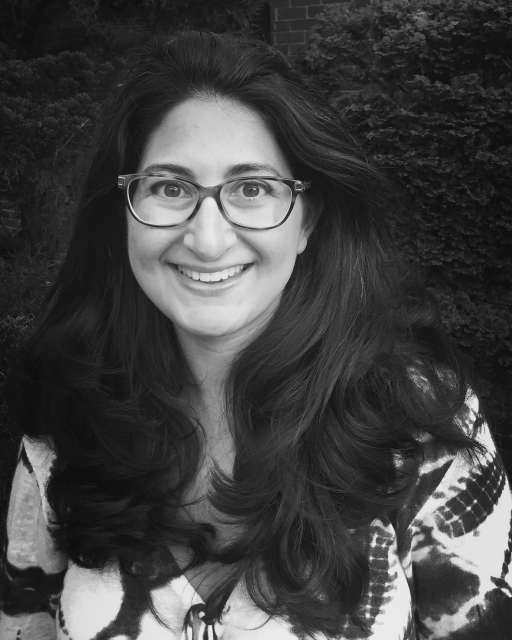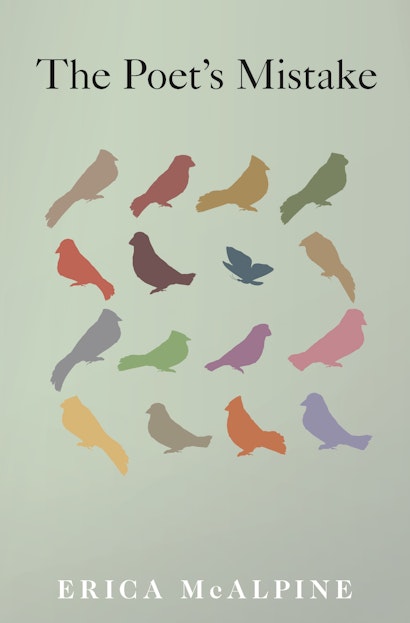Keats mixed up Cortez and Balboa. Heaney misremembered the name of one of Wordsworth’s lakes. Poetry—even by the greats—is rife with mistakes. In The Poet’s Mistake, critic and poet Erica McAlpine gathers together for the first time numerous instances of these errors, from well-known historical gaffes to never-before-noticed grammatical incongruities, misspellings, and solecisms. But unlike the many critics and other readers who consider such errors felicitous or essential to the work itself, she makes a compelling case for calling a mistake a mistake, arguing that denying the possibility of error does a disservice to poets and their poems.
This book sets itself the task of pointing out mistakes in poems—but is it really possible for poets to be wrong? Doesn’t “poetic license” mean that the poem is always right?
EMcA: Poets get things wrong all the time! Just like people (since that’s what they are, after all). One of the premises of this book is that the notion that poems are never wrong is itself wrong-headed. There is an important difference between poetic license, which is a form of compositional freedom, and mistakes, which happen involuntarily. When poets decide to break the rules, either by telling untruths or messing up their grammar or using words incorrectly (either through dialect or slang or to create an effect of some kind), they are enacting poetic license. But when they try to get things right (factually, grammatically, orthographically) but don’t quite manage—that’s mistake.
How can you tell the difference between when poets are trying to get things right and failing versus when they are deliberately using license for artistic effect?
EMcA: Getting to the bottom of a poet’s intent can be difficult (some say impossible)—but attempting to do so has always been a rewarding aspect of reading poetry for me. In each of the chapters of this book, I try very hard to disentangle accident from intent in order to make a guess about what the poet may have wished his or her poem to do or be. I do this by thinking about how, when, under what conditions the poem was writte—and by thinking about poets’ styles and interests and habits. Some poets are notoriously careless; others are scrupulous crafters. Mistake means different things for different poets, and thinking through these distinctions and how they relate to intent can be part of the fun. Guessing at intended meaning has always been part of our reading practices to some extent; one difference here is that I am zeroing in on moments when poets don’t appear to mean what they have written as opposed to when they do. My examples aren’t meant to seem like accusations; rather, I’m interested in freeing poems from the kinds of well-meaning but overly-sympathetic readings that critics occasionally impose on them. When we encounter accidental mistakes in grammar, historical fact, or spelling in poems and then graciously chalk these up to “license” on the part of the poet, aren’t we imposing our own wish for perfection onto the poem rather than understanding it for the human-made thing that it is?
How did you come up with the idea for this book?
EMcA: The initial spark came to me in the middle of the night. I was obsessing about an article I’d written on the nineteenth-century British poet John Clare—who was a famously bad speller. In that essay, I spent two pages examining a sonnet in which he misspells the word “wander” as “wonder.” Wasn’t Clare being clever in mixing up these two words? Isn’t wondering the mental form of wandering? After all, the Latin verb for “to wander” is erro, errare—which forms the root of “error” itself! Something didn’t sit right with me about this close reading as I pondered it while trying to go back to sleep. Clare was a self-educated peasant poet who misspelled word—even words he knew well—all the time. Why was I so keen to turn his mistake into something more meaningful? Can’t poets make mistakes without our feeling the need to rescue them? Isn’t it better to register the mistake as something unintended and enjoy it for what it is? I decided it would be fun to see how many other mistakes I could find in poems and to think about what it would mean for scholars to call them mistakes rather than to try and justify them creatively, as I had done with Clare. And I found that nearly every mistake in the history of poetry was accompanied by scholarship that attempted to rescue the poet by claiming that his or her mistake was purposeful and had some use. The better the scholar, the more creative and ingenious the justification. So the book grew out of these stories of mistakes and their redeemers and what it all says about our ways of reading poetry.
What do you think is the most embarrassing blooper in the history of poetry?
EMcA: I guess Robert Browning’s mistake in Pippa Passes probably wins that distinction—though how embarrassed he was when a reader pointed it out to him many years later in a letter remains a question. Browning erroneously uses the word “twat” to refer to part of a nun’s habit (he equates it to a monk’s cowl). He must not have known many nuns!
As a poet yourself, did you ever feel uneasy about calling out the flaws of other writers?
EMcA: No—just the opposite. The more I wrote about mistakes in poems, the closer I felt to the poets I was writing about. I think poets generally want to get things right—to have their facts straight, to use language artfully but also rigorously, to make careful, well-crafted things. I think the flaws I write about in my book are the sorts of mistakes these poets would have wished to correct, had they been discovered in time. The process of sorting through errors, naming them as such, and thinking about authorial intention felt more liberating than using mistakes as a jumping off point for my own creative interpretations. Mistakes can be like windows: you find one, you peer in, and you get to see the poet in the very act of writing.
So do you think it is possible for mistakes in poems to be a good thing?
EMcA: Mistakes are always unintended (by definition), but that doesn’t mean we can’t enjoy them. I like it when I catch poets in the act of erring; it makes them human. And in writing this book, which catalogs mistakes of different kinds, by very different kinds of poets, I found that mistakes can tell us a lot about what poets do mean to do. Freud taught us that mistakes often betray unconscious wishes; and even in the instances when mistakes are less volitional than that (when they occur as a result of faulty knowledge or a lack of education rather than repressed desire), they can tell us something about poets’ preoccupations and needs within the writing process. Mistakes can be clues to help us understand how poems get made; that has to be a good thing.
Erica McAlpine is associate professor of English at the University of Oxford and a tutorial fellow at St Edmund Hall. She is the author of the poetry collection The Country Gambler.

